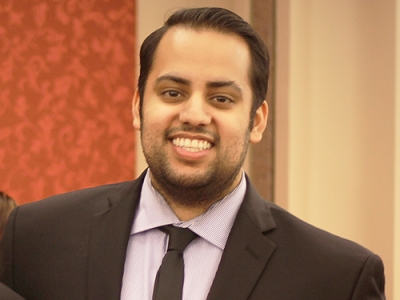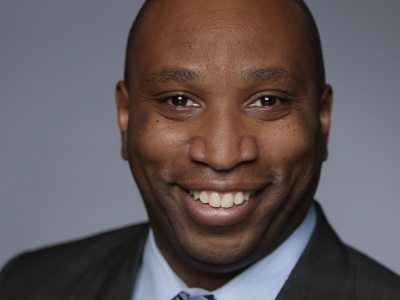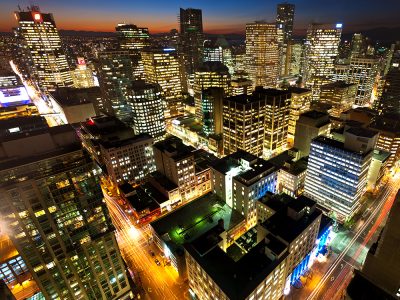By Karen Kelly
Photos by Bryan Gagnon
In the midst of a sitcom on Russian television, a short video will appear during the commercial break. It begins with an image of the Ukrainian flag superimposed with the Nazi symbol. The camera zooms in and patriotic music swells while a giant ‘V’ destroys the flag. In the next scene, Russian soldiers march towards the viewer against a backdrop of burning buildings and an orange sky.
That clip—along with a music video featuring nurses singing sea shanty-style as they move into a ‘Z’ formation—is among the many ways that Russian state media is broadcasting its narrative about the war in Ukraine. It’s a tale that features heroic Russian soldiers, a genocide perpetrated by suspected Ukrainian Nazis, and a looming threat from NATO and the West.
“It’s almost like the propaganda machine is throwing things against the wall to see what sticks,” says Paul Goode, the McMillan Chair of Russian Studies and Associate Professor in the Institute of European, Russian and Eurasian Studies (EURUS). “There is a very clear relationship between Russian state television and the Kremlin, so this gives some insight into their thinking.”
Goode has spent his career conducting ethnographic research in and around Russia. But now that travel to the country is impossible, he is using his fluency in Russian and knowledge of the society to study the country through its media. Specifically, he’s interested in how the Russian state networks coordinate their messaging to influence viewers.
“[I began] with Russia’s claim that its invasion was intended to stop an alleged genocide in eastern Ukraine. It is worth recalling that a similar claim was made…at the start of Russia’s 2008 war with Georgia,” writes Goode in an article for PONARS Eurasia. “Russia similarly invoked preventing genocide and opposing fascism as justifications for occupying Crimea…in 2014. By the time the [recent] decision to go to war was taken, mentions of genocide skyrocketed on state-owned and pro-government television channels.”
Using television broadcast transcripts from the Integrum Profi database, Goode discovered similar trends across the networks regarding the humanitarian corridor in Ukraine and the use of human shields.
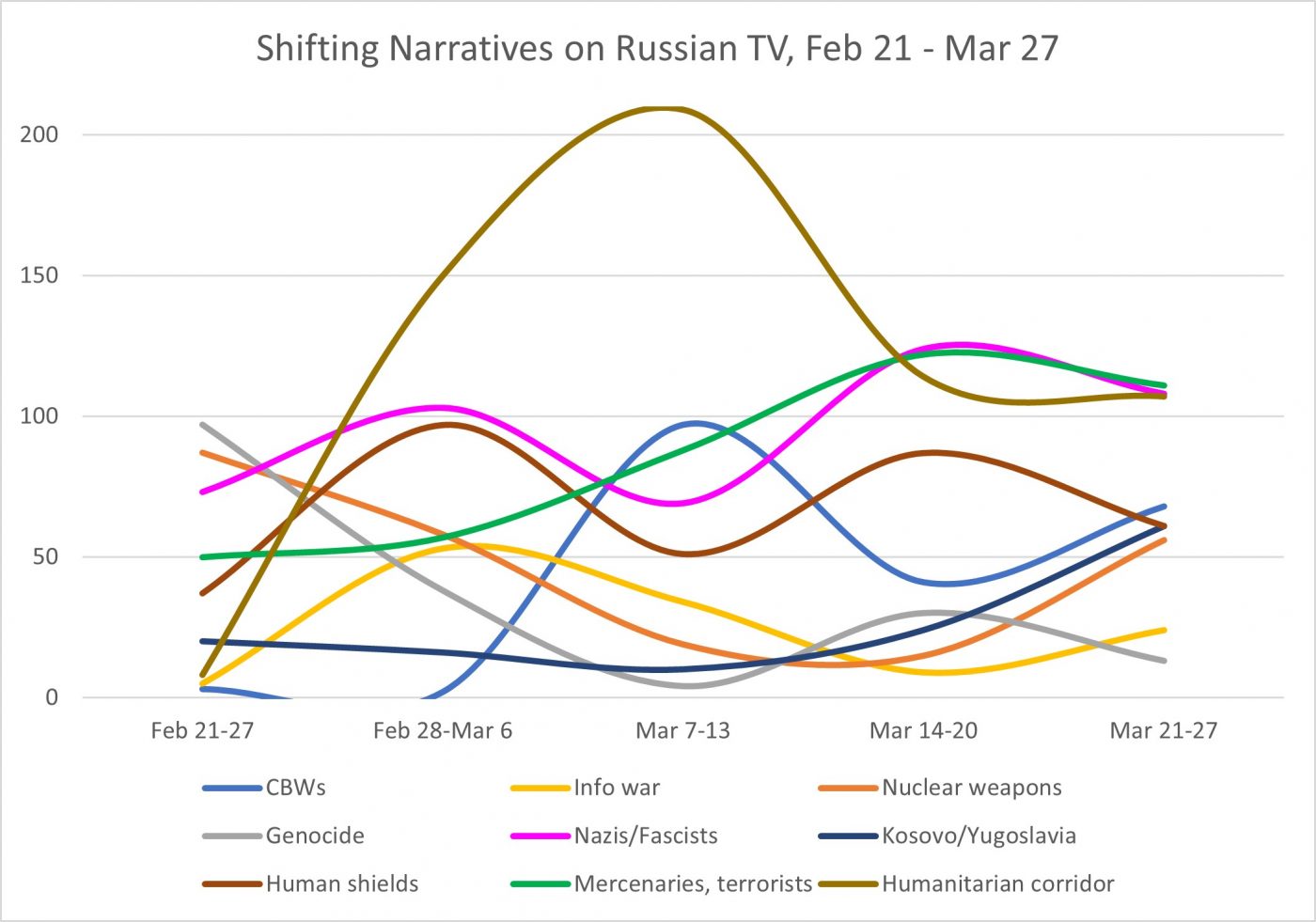
“The Russian angle is that Russia has been framed by the West and is not shelling civilians, but rather the civilians are being used as human shields by fascists or nationalists in Ukraine,” notes Goode. “It’s basically a way to refocus blame or at least create considerable doubt in the minds of Russians who may have seen the images from cities like Mariupol.”
Surveys conducted with 1,600 Russians by the Levada Center before the invasion found the majority of Russians polled were uninterested in war, while 50 to 60 percent “were nevertheless certain that the United States and NATO would be to blame if war broke out.”
“I think Russians are ambivalent about the war, and that ambivalence works to the advantage of the state,” notes Goode. “The state wants people demobilized and disengaged. If they don’t feel strongly one way or the other, the state can pursue its objectives.”
Among those objectives are clear instructions for teachers on how to talk about the war—known as a ‘special military operation’ in Russia. The networks have also developed children’s programming about the events in Ukraine.
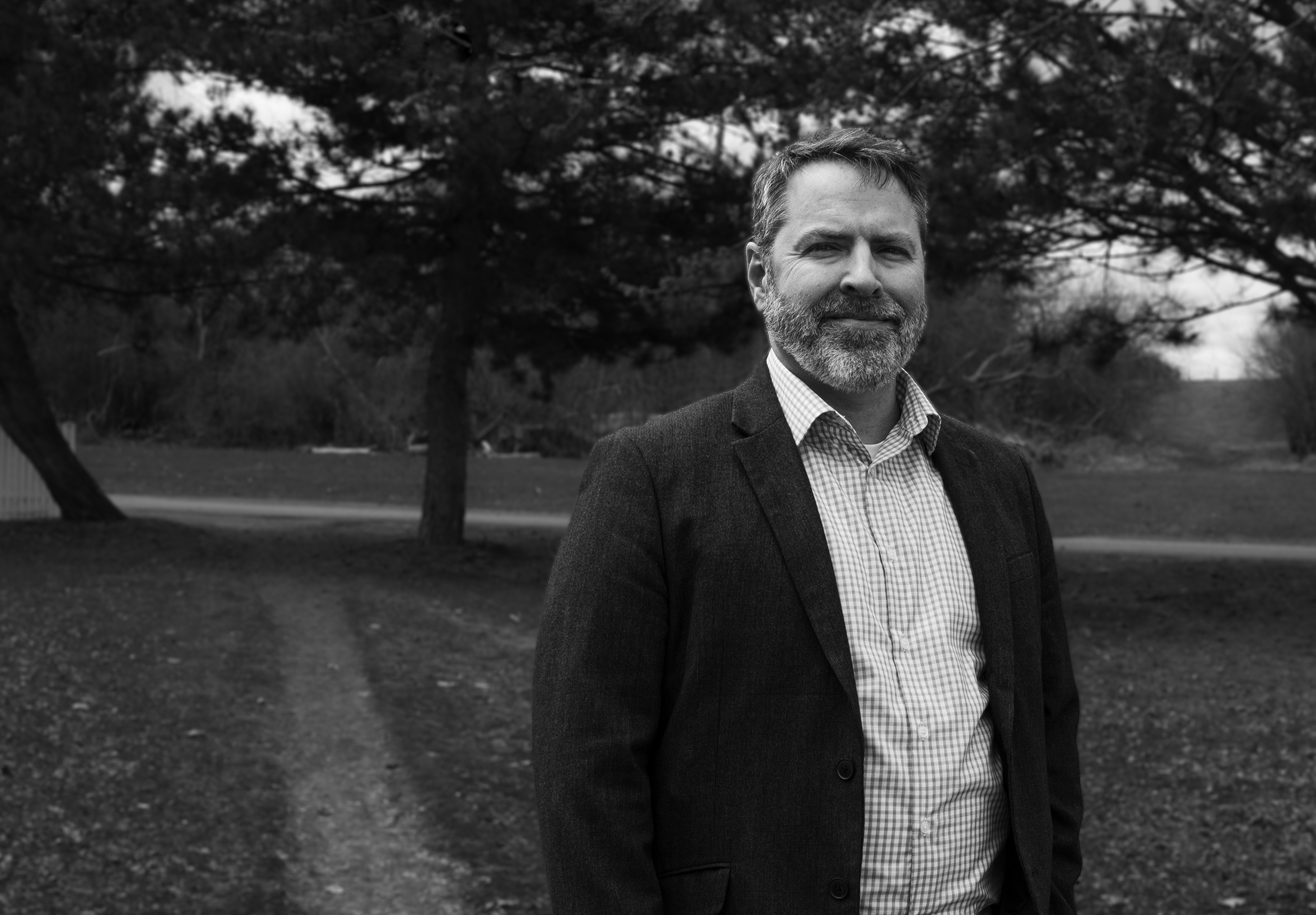
The Generation Gap
With all Western media blocked—including social channels—few Russians are exposed to alternative viewpoints on the events in Ukraine. But those who do are disproportionately younger.
“There is a generational split because many younger people have VPNs installed on their phones that enable them to access information outside of Russia. Older people don’t know how to do that,” says Goode. He notes that they may also be less willing to access outside information, as the majority receive their news from state television.
However, the Kremlin has taken note that some Russians are still finding a way to escape the media bubble.
“The term ‘information warfare’ has reappeared as a priority topic on Russian television, which reflects the speed with which Russia lost control of the [social media] narrative about the war,” says Goode. “There is particular emphasis on discrediting Western social media platforms.”
After a 30-year period of relative freedom, Goode fears that Russia is returning to the kind of restrictions that people faced during the Soviet era, when the society was more insular.
“This war could set Russian society back significantly. I think people will now look for ways to rationalize why they have been isolated by the world, and if the Kremlin has been consistent about anything over the years, it’s been consistent in the claim that the West is against us,” says Goode. “In the end, everyone prefers to have a positive image of their own government.”
Monday, May 2, 2022 in Another Take, Institute of European, Russian, and Eurasian Studies
Share: Twitter, Facebook
